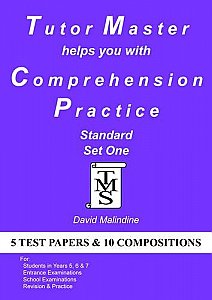Choosing the Right Type of Tutoring
Before you begin to look for a tutor you need to decide on the type of tutoring that will be most appropriate for your child. This step is often overlooked by parents who are either panicking or simply desperate to find a tutor at all. It is an important consideration though, because if your child is not comfortable with the format of the lessons, your money may be wasted. We often hear of parents expressing regret at having chosen “the wrong type of tutoring” for their child.
The options you have are:
- One-to-one tuition.
- Tuition in small groups, of around four to six children.
- Class tuition, which may mean a group of as many as 20 children.
Some of the advantages and disadvantages of these types of tutoring are outlined below.
One-to-One Tuition
This is usually the most expensive type of tuition (although not always – see “Tuition in large classes”, below). It is understandably popular with parents, who feel that the complete focus required from the child for the duration of the session and the dedicated personal attention of the tutor, combine to give them the best value for money.
If your child lacks confidence, or is easily disheartened when others around them consistently out-perform their efforts, an individual tutor will probably be most effective. If your child is the “sociable type”, easily distracted by others, then a one-to-one tutor or a very small group will help to keep them more focussed.
If you have other children to care for and the tutor is willing to teach in your home, rather than their own, the convenience of that may influence your decision.
If your child has special needs, such as dyslexia or dyspraxia, they are most unlikely to get the personal attention they will need in a large group, and possibly not even in a small group, so one-to-one tuition will usually be the clear choice. It is worth looking for a tutor who has relevant experience in preparing a child with special needs for the 11 Plus.
Tuition in Small Groups
Tuition in small groups is usually more economical than employing an individual tutor. If your child learns best in the company of others, or enjoys having a little healthy competition around them, a small group can work extremely well.
Clearly the tutor has less time to spend with each parent at the end of a session, so you need to check carefully how you will receive feedback on your child’s progress.
If your child is shy, particularly with adults, they may find the intensity of a one-to-one situation too much for them and be happier to have the company of a few other children to reduce their time in the spotlight.
Tuition in Large Classes
n the last decade, the number of tutors setting up large businesses for 11+ preparation has mushroomed. They may run two or even three classes of 20 or more children after school each day, and then further classes at the weekend. With some tutors charging more than £2,000 to teach each child for 9 – 12 months, you do not need a calculator to work out just how lucrative such operations are.
Many of them are highly professional companies run by very experienced tutors, and they offer first-class tuition.
However on occasions we do receive reports about companies that are little more than money-making machines for the proprietors, providing sub-standard preparation. Caveat emptor – Buyer Beware!
Tuition in large groups provides a familiar classroom environment for children and they may also be with friends from their school, giving them reassurance that they are “all in it together” and allowing them to talk about the 11+ process with others. The environment of a large group is also not as intense as individual or small group tuition and may suit children who are shy or prefer the company of their peer group around them. It is also an effective type of tuition for a very competitive child who is motivated by the desire to achieve higher results than their peer group.
Academically, because of the class sizes, large groups are generally best for a child who is an independent worker and is already fairly secure in basic mathematical operations, such as multiplication and division, and in their vocabulary and spelling.
With so many children in a class you are unlikely to receive feedback on a weekly basis unless there are problems. However you should not simply assume that the absence of feedback means that all is well. If the tutor does not have effective systems for reporting back to you in place, make a point of speaking to them every few weeks to check on your child’s progress.










